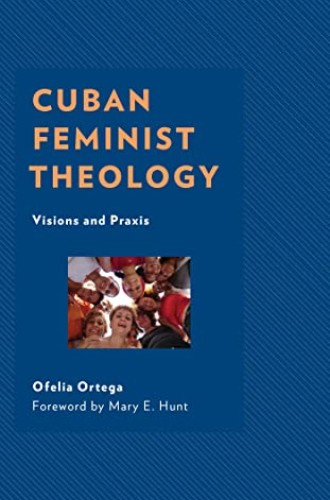Ofelia Ortega does theology to empower women
And she does it in an unmistakable Caribbean accent that embraces, hugs, kisses, dances, cries, and rumbles out laughter.
This book—dedicated to Letty M. Russell and David C. White, with a foreword by Mary E. Hunt—is a “Cubacatesen” of 19 marinated essays that Ofelia Miriam Ortega Suárez distilled between 1979 and 2021. Ortega’s main goal is straightforward: to fill a lacuna in the theological world’s perception of Cuba by articulating a theology that is “inclusive, community-oriented and participative,” a theology attentive to the flourishing of women that is “contextual, ecumenical and focused on liberation.” Ada María Isasi-Díaz was not the only Cuban woman to engage in feminist theology, as substantiated by the rosary of other names Ortega uplifts: Beatriz Ferreiro García, Blanca Rosa Ojeda, Dora Valentín, Clara Rodés, Nerva Cot, Raquel Suárez, Izett Samá, Daylíns Rufín, Gisela Pérez, Rhode González, Kirenia Criado, Dora Arce, and Clara Luz Ajo.
Cuban Feminist Theology is an affirmation that this theology exists as much as Ortega’s flesh and bones exist. Furthermore, the author demonstrates that her theology is neither an end in itself nor a means to impress the academy. She does theology for the sake of the empowerment of women, as is apparent from the book’s subtitle, “Visions and Praxis.”
This book reveals an unmistakable Caribbean accent that embraces, hugs, kisses, dances, cries, and rumbles out laughter—which masters prohibited for centuries, especially in women’s mouths—with the entire Pachamama (Mother Earth). Ortega overcomes Cartesian binaries, such as the dichotomy between the mind and body, which she calls “the beauty and the beast.” Little wonder that we see her preaching from the pulpit one day and creating laws in the Cuban parliament the next.





